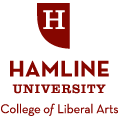Date of Award
Spring 2018
Degree Type
Honors Project
School
College of Liberal Arts
First Advisor
Katharine Bjork
Abstract
The Late Nineteenth Century was a period of major flux within the world of American anthropology. Two major centers of power had emerged within the nascent field. Federally sponsored anthropologists clashed with academic institutions, especially those associated with Harvard’s Frederic Ward Putnam. These two bodies found themselves at odds over methodological design and the theoretical frameworks supporting their research. These issues would span the breadth of anthropology as a field, but nowhere was it more visible than in the scope of museum studies. Public displays of anthropological thought were the most direct way that scholars were able to present their findings to the general public. The ideas that these displays conveyed would inform the nation’s public on the world around them, and their rightful place in it. Federal anthropologists and their subscription to Social Evolutionary theory painted all human societies as existing on the same linear quest towards an idealized civilization. Putnam and his followers believed that societies needed to be classified by the unique geographical and temporal spaces in which they occupied. The issues of museum management would come to a head in the months following the Chicago World’s Columbian Exhibition with the formation of the Columbian Field Museum. The newly established museum, and the city of Chicago itself, became a hotly contested center for both groups hoping to establish a cultural foothold in the heart of America. It is within this context that Franz Boas, a pivotal figure within anthropology, and his involvement in not only the museum but the larger debate as a whole is investigated. Through an analysis of Franz Boas’ early career, this paper explores the social, methodological, and racial divides that defined early American anthropology and its place within the Nation’s narrative.
Recommended Citation
Peper, Martin W., "Franz Boas and the Columbian Field Museum" (2018). Departmental Honors Projects. 75.
https://digitalcommons.hamline.edu/dhp/75
dc_type
text
dc_publisher
DigitalCommons@Hamline
dc_format
application/pdf
dc_source
Departmental Honors Project

